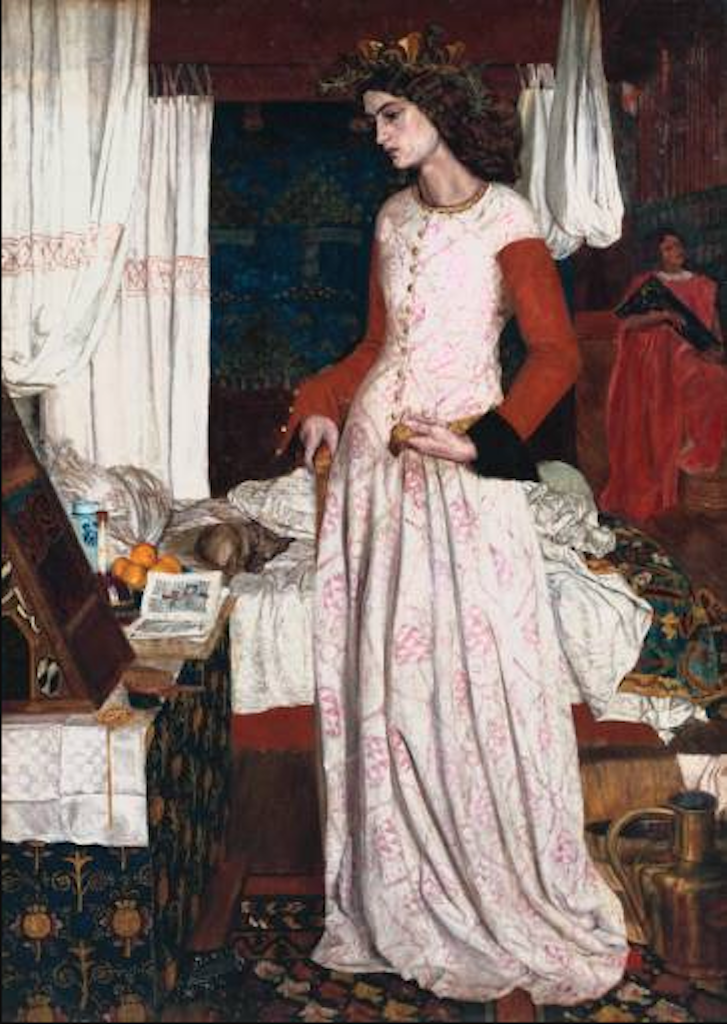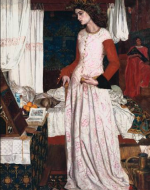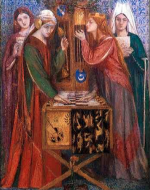Created by Kyle Barton on Sat, 07/13/2019 - 15:53
Description:
Morris’s first volume faced mixed, even discouraging, reviews. It didn’t help that he had dedicated his volume to his mentor Dante Gabriel Rossetti, who was disliked by certain reviewers. These retaliated by condemning the Defence as showing Pre-Raphaelite influence--notably in arcane subject matter and a concentration on detail.
More important was the reviewers’ reaction to the medievalism of the Defence poems. Whether they liked or disliked them, most agreed that Morris’s poems were original and even powerful, but they could not fully understand them (often they hadn’t read the chief source Thomas Malory’s Morte D’ Arthur and Jean Froissart’s Chronicles). For example, an unsigned review in the conservative Saturday Review, generally hostile to unconventionality in poetry and politics, declaimed:
You cannot quite make out what it means, or whether it means anything taken altogether; but each touch is sharp, the colour is brilliant, the costume picturesque. Still, the general effect is decidedly unpleasant. If the ages of faith and chivalry were this sort of thing, it must have been a queer world to live in. (20 November 1858)
And Morris’s more sympathetic reviewers countered with proclaiming his accuracy in evoking the past, ignoring the romantic aspects of his portrayals:
Tennyson writes of mediaeval things like a modern, and Mr. Morris like a contemporary. Mr. Morris's [Sir Galahad] is the actual champion, just as he lived and moved and had his being some twelve hundred years ago. Tennyson is the orator who makes a speech for another; Mr. Morris the reporter who writes down what another man says. . . . Rossetti and Morris are the men of the middle age; and . . . this increases their interest towards ourselves, as giving us what it would be vain to expect from any one else (Richard Garnett, Literary Gazette, March 1858)
In general the reviewers preferred the poems based on the more familiar Arthurian legends and seldom noticed those based on Froissart such as “Concerning Geffray Teste Noire.”
During the succeeding years Morris continued to write poems, but he did not attempt to publish another volume until 1867. In that year he issued The Life and Death of Jason, based on the classical tale of the Argonauts and the Golden Fleece, familiar to every British schoolboy.
Morris didn’t turn away from medievalism per se, but his later medieval poems and stories are based on even more careful research, so that in this sense he chose to become more, rather than less, authentically medievalist. Morris also turned to the translation of the original documents themselves, including the Anglo-Saxon epic Beowulf, several chivalric French romances, and a series of Old Icelandic sagas which influenced his later writings in style and substance. After The Defence he tended to write narrative, lyric and epic poems rather than continue with the dramatic monologue form.



